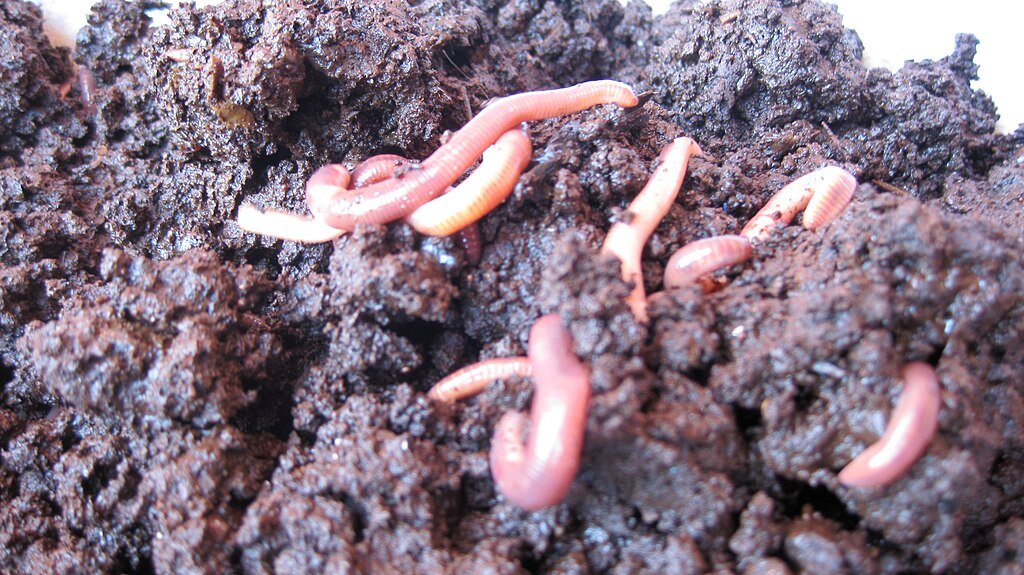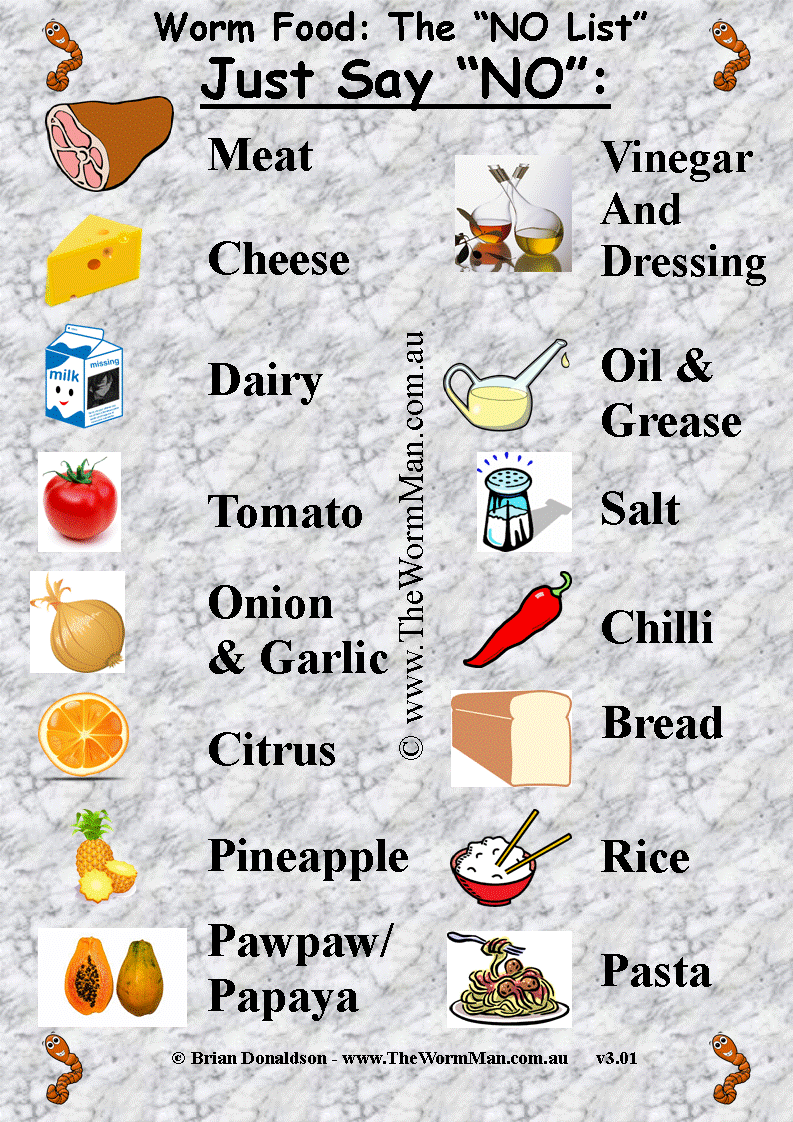What are the 5 mistakes that people commonly make when composting with worms? - Essential Tips to Avoid Common Errors

Composting with worms, also known as vermicomposting, is an eco-friendly method to recycle kitchen scraps and garden waste into nutrient-rich soil. While this practice can significantly benefit both your garden and the environment, beginners often make common mistakes that can hinder the composting process. Understanding these pitfalls is essential for maximizing the effectiveness of your worm bin. In this article, we will explore the five most frequent errors made by those new to vermicomposting and provide essential tips to avoid these missteps, ensuring a thriving worm ecosystem and bountiful compost.
Common Mistakes in Worm Composting
When engaging in worm composting, or vermicomposting, individuals often encounter several pitfalls that can hinder the effectiveness of the process. One common mistake people make is overloading the worm bin with too much food waste at once, which can overwhelm the worms and lead to unpleasant odors and potential pest problems. Additionally, many composters fail to consider the balance between nitrogen-rich and carbon-rich materials, resulting in a less efficient breakdown of organic matter. Another frequent error is neglecting the moisture levels, as worms thrive in a damp environment, while being careful not to drown them. Furthermore, some people overlook the importance of maintaining the appropriate temperature for their worm bin, which can either stress out the worms or promote the growth of harmful pathogens. Lastly, many beginners do not monitor the worm population, which can lead to either overcrowding or insufficient numbers to process the organic waste effectively.
Overloading the Worm Bin
One of the biggest mistakes made in worm composting is overloading the worm bin with a vast amount of food waste too quickly. This occurs when individuals dump large quantities of scraps in one go, not allowing enough time for the worms to consume it. As a result, excess food can start to decompose improperly, creating unpleasant odors and attracting pests, which can disrupt the entire composting system and potentially harm the worms.
Imbalanced Material Composition
An essential aspect of successful worm composting is achieving the right balance of nitrogen-rich (green) and carbon-rich (brown) materials. Beginner composters frequently neglect this ratio, leading to either a heavy nitrogen environment, which can cause odors and stress the worms, or an excess of carbon that slows down the decomposition process. A balanced mixture is crucial for maintaining an efficient and healthy vermicomposting system, enabling worms to thrive while effectively breaking down organic waste.
Neglecting Moisture Levels
Maintaining appropriate moisture levels within the worm bin is crucial for the health and productivity of worms. Many composters do not monitor this factor closely, resulting in either overly dry conditions, which stress the worms and hinder their activity, or overly wet conditions that can drown the worms or cause anaerobic bacteria to thrive. Worms generally prefer a consistency similar to a damp sponge, so it's essential to regularly check and adjust the moisture levels as necessary.
Temperature Control Issues
Temperature plays a vital role in worm composting, and many individuals fail to ensure their worm bins are kept at an ideal range, generally around 55-77°F (13-25°C). Too high temperatures can lead to overheating, which is detrimental to worm health, while low temperatures can slow down their digestion and overall activity. It’s important to place the worm bin in a suitable location, away from extreme heat or cold and to monitor conditions periodically to ensure they remain within the optimal range.
Ignoring Worm Population Management
Another common oversite in worm composting is neglecting to monitor and manage the worm population within the bin. Overcrowding can occur if the number of worms surpasses the capacity of food available for them, leading to competition for resources and potentially stunted growth. Conversely, having too few worms can slow down the decomposition process. It's important to periodically assess both the health and population of the worms, adding more as needed or reducing their numbers to maintain an efficient composting environment.
| Mistake | Consequence |
|---|---|
| Overloading the Worm Bin | Odors and pest problems |
| Imbalanced Material Composition | Impeded decomposition and worm stress |
| Neglecting Moisture Levels | Hindered worm activity or drowning |
| Temperature Control Issues | Stress and reduced worm activity |
| Ignoring Worm Population Management | Overcrowding or slow decomposition |
What are the cons of worm composting?

Worm composting, also known as vermicomposting, is a process that utilizes worms to break down organic waste into nutrient-rich compost. While this method has many benefits, it also comes with several drawbacks that should be considered. Below are some of the cons of worm composting.
Initial Setup Costs
Setting up a worm composting system can involve certain expenses that might deter beginners. These costs can include:
See also:
- Worm bin: Quality bins can be pricey depending on the size and materials used.
- Worms: Purchasing live worms can be an additional cost, especially if you require a larger quantity for efficient composting.
- Accessories: Items such as moisture meters, bedding materials, and tools for maintaining the bin add to the initial investment.
Limited Food Options
Not all organic waste is suitable for worm composting. Certain food items can harm worms or slow down the composting process. These include:
- Citrus fruits: High acidity levels can be detrimental to worms.
- Meat and dairy: These can create odors and attract pests, which can disrupt the composting process.
- Oils and fats: These can suffocate worms and impede the aeration of the compost.
Temperature Sensitivity
Worms are sensitive to changes in temperature, which can affect their activity and health. Potential issues arise when:
- Extreme heat: High temperatures can lead to heat stress, causing worms to die.
- Extreme cold: Lower temperatures can slow down their metabolism, inhibiting composting.
- Seasonal fluctuations: Adjusting the composting environment can be challenging during seasonal changes.
Pest Attraction
Worm composting can attract unwanted pests if not managed properly. Some common issues include:
- Fruit flies: They are drawn to decomposing matter and can quickly multiply in a worm bin.
- Rodents: Leftover food can attract mice and rats, posing a risk to your composting setup.
- Ants: These can invade the worm bin, making the environment unsuitable for worms.
Time Commitment
Worm composting requires regular attention and care, which may not be suitable for everyone. Key time commitments include:
- Monitoring the bin: Regular checks for moisture levels and worm health are necessary to ensure the composting process runs smoothly.
- Harvesting compost: This can take time and requires specific methods to avoid harming the worms.
- Feeding schedule: Worms should be fed regularly to maintain their health, and this requires planning and evaluation of their food intake.
Why are my worms dying in my compost bin?

There could be several reasons why worms are dying in your compost bin. Understanding these factors can help you create a healthier environment for your worms. Here are some common causes:
Improper Moisture Levels
Worms require a specific moisture level to thrive. If the compost bin is too dry or too wet, it can lead to worm death.
- Overwatering: Excess water can suffocate worms and create anaerobic conditions.
- Underwatering: Lack of moisture can dry out worms, leading to dehydration.
- Ideal Conditions: Aim for a moisture level similar to a damp sponge.
Inappropriate pH Levels
The pH level of the compost bin can significantly affect worm health. Worms prefer a slightly acidic to neutral environment (pH 6-7).
- Acidic Conditions: A pH below 6 can cause distress and death in worms.
- Alkaline Conditions: A pH above 7 can also be harmful, making it essential to monitor pH levels regularly.
- Testing Tools: Use pH test strips or a meter to ensure optimal conditions.
Temperature Fluctuations
Worms are sensitive to temperature changes, and extreme temperatures can be fatal.
- High Temperatures: Temperatures above 85°F (29°C) can lead to heat stress and death.
- Low Temperatures: Frost or cold temperatures below 50°F (10°C) can cause metabolic slowdown.
- Ideal Range: Maintain a temperature between 60°F and 75°F (15°C to 24°C) for optimal health.
Overfeeding or Wrong Food Choices
Worms have specific dietary needs. Overfeeding or providing unsuitable food can lead to problems.
See also:
- Overfeeding: Too much food can create excess heat and odor, leading to an unhealthy environment.
- Food Choices: Avoid feeding them meat, dairy, and oily foods, as these can harm worm health.
- Balanced Diet: Provide a mix of vegetable scraps, paper, and coffee grounds for a balanced diet.
Pest Infestation
Pests such as fungus gnats or other insects can invade compost bins, causing stress to worms.
- Fungus Gnats: These pests thrive in overly moist conditions and can harm the worm population.
- Rodents: Other animals may be attracted to the compost, causing threats to worm safety.
- Preventive Measures: Keep the bin covered and maintain proper moisture levels to deter pests.
What not to put in compost with worms?

Composting with worms, also known as vermicomposting, is an excellent method for recycling organic waste. However, not everything can be added to a worm compost bin. Certain materials can harm the worms or disrupt the composting process. Here’s a detailed overview of what not to put in compost with worms.
Items with High Acidity
Adding materials with high acidity can be detrimental to the health of your worms. Worms thrive in a neutral pH environment, and acidity can kill them.
- Citrus fruits: Peels and leftover pulp from oranges, lemons, and grapefruits can create a highly acidic environment.
- Tomato products: Items like tomato skins and leftover sauces can also contribute to acidity.
- Vinegar: Any products containing vinegar can negatively affect the pH balance needed for worm health.
Animal Products
Including animal products in your worm compost can introduce pathogens and odors, making it unsuitable for a healthy worm bin.
- Meat: Leftover chicken, beef, or pork can attract pests and produce foul smells.
- Dairy: Milk, cheese, and other dairy products can break down slowly and lead to problems with odors and pests.
- Fish: Fish scraps can decompose rapidly but emit strong odors that are harmful to a worm composting system.
Processed Foods
Composting processed foods can lead to chemical imbalances and unhealthy conditions for worms.
- Chips: Salty and often greasy, chips provide little nutritional value for worms.
- Sweets: Foods high in sugar can create imbalances and may attract unwanted pests.
- Fast food residues: These often contain additives that are not beneficial for the composting process.
Plant Material with Disease
Adding diseased plant material can spread pathogens within your compost bin, putting your worms at risk.
- Infected plants: Any plant with visible signs of disease should not be added.
- Weeds: Some weeds, especially those that produce seeds, can survive composting and regrow in your garden.
- Fungal infections: Plant material infected with fungi can introduce harmful spores into the bin.
Non-Biodegradable Items
Non-biodegradable items will not break down, creating clutter and potentially harming your worms.
- Plastic: Any type of plastic is harmful and will remain in the worm bin indefinitely.
- Metals: Items like aluminum foil or steel cannot decompose and will contaminate your compost.
- Glass: While inert, glass can also pose injury risks and take an unacceptable period to break down if crushed.
Questions from Our Readers
What is the most common mistake people make when feeding worms?
One of the most common mistakes is overfeeding the worms. When people add too much food at once, it can lead to a build-up of uneaten scraps that may attract pests or create odor problems. It's important to only provide a small amount and gradually increase as the worms consume the food.
How does improper pH affect worm composting?
Improper pH levels can significantly affect worm health and composting efficiency. Worms thrive in a slightly acidic to neutral pH, typically around 6.0 to 7.0. If the pH is too acidic or alkaline, it can lead to stress or harm to the worms, ultimately hindering the composting process.
See also:
What types of waste should be avoided in worm composting?
Certain types of waste should be avoided when composting with worms, such as meat, dairy, and oily foods. These materials can create bad odors, attract pests, and may lead to anaerobic conditions that are harmful to the worms. Stick to vegetable scraps and organic waste for the best results.
Why is moisture control crucial in worm composting?
Moisture control is crucial because worms require a specific level of moisture to thrive. If the bedding is too dry, worms may become dehydrated, while excessive moisture can lead to suffocation or a messy, anaerobic environment. Keeping the right balance is essential for a successful worm composting setup.

If you want to read more articles like What are the 5 mistakes that people commonly make when composting with worms? - Essential Tips to Avoid Common Errors, we recommend you check out our Compost category.
Leave a Reply
Related Articles